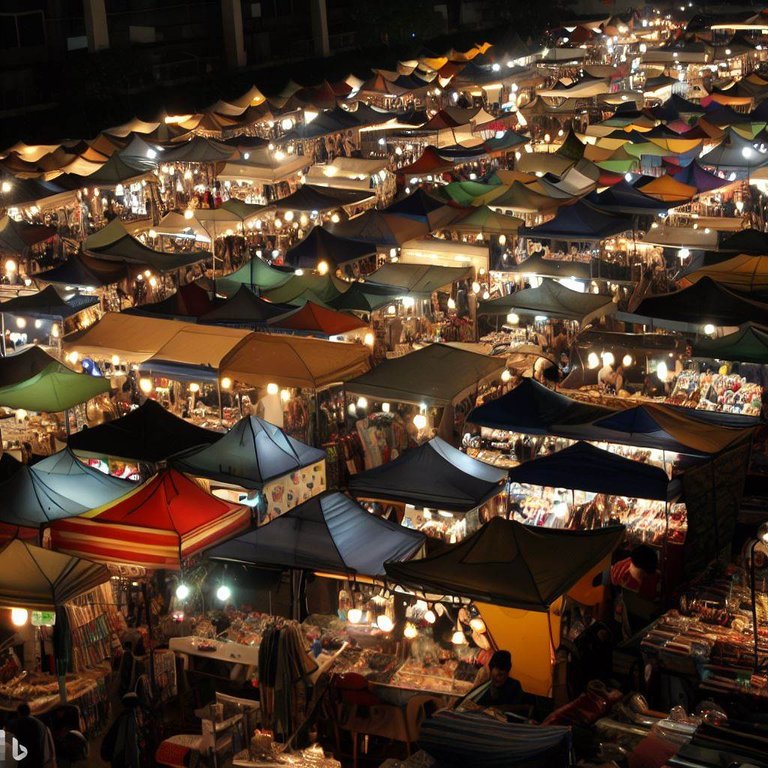Vendor conjunction: shared dividends in a competitive market
Accessibility is vital for consumers and businesses alike. In markets, people can find various products from different shopkeepers and can select base on their preference.
However, availability of the same products from a bunch of different shopkeepers is great for having options to choose from. Equality in quality is often present for the same brands and recommended ones but it's the fluctuating prices that make up the difference and window shoppers know this.
These vendors are in preceding sequence so customer service and familiarity are players here as accessibility isn't the issue anymore.
One significantly perceivable way they compete with each with other is the reduction of costs as in discounts for multiple reasons.
While this aids in customer retention, a major idea behind it is to outsale their neighbors in the market. The faster products go out the more they can order. It's more like taking a half step back and a full one forward.
Normally, these widerange discounts don't take place in small businesses as a main strategic marketing because they're ultimately looking for profits and they usually plan on how much is expected in order to keep the business going.
Increments hardly happen as some win in this game by taking some losses in profit to attract more customers and get more products as the faster they can empty and reload their inventory, the dips in returns don't show up again.
While this goes on, the others are still trying to hold their ground and the cycle repeats.
From my area just some blocks away resides the market built by the government for the community. Shop allocators have their say on who owns a shop or not and would sometimes sell it to two people at the same time and they end up fighting over it.
It becomes so serious that it at times leads to a police intervention where loses comes at the expense of one the victims (most of these shops are barely two meters wide). Though bribery is involved as well as the high demand from salespeople, they'd go on to pin it as a mislay.
The issue is that, as the initial plan of allocating spaces for shops (inside the perimeters) to vendors after paying and consumers would come and buy their food stuffs and other products. This gives vendors the right to sell as they won't allow others to sit outside the perimeters to sell.
Then they started allocating areas on the front end of the market wall and eventually more sellers storm the place now both internal and external areas of the market leading to overload of shoppers as the queue surpasses the market perimeters consumers discard the need to go all the way in for buying when they can do it outside.
Now those inside are complaining about the issue but it felt on deaf ears as it persists.
It's out of hand for the authorities now I suppose though it's like they will push more people out of the place just like they did with the market uptown where it's so overcrowded that cars tend to crawl to pass as vendors and passers-by surpass the sidewalks.
It's not once or twice that officers kick out vendors only for them to come back. Now it's more of a routine work for them.
 source
source
Some salespeople move along in trial and error mode as they keep trying out different products. Certain shoppers thrive in terms of what they bring into the market and what and what's trending amidts those who wouldn't change. Now this has positives for them as sellers like trying new things but trends don't usually come as cheap.
So as consumers purchase them more and more, it either forces the other vendors to reduce their prices further or regulate it base on the pricing and production quantity of these trends as they try to dominate.
If they don't last, prices seems to regulate a bit as demand rises and if they take over, most vendors would profit as early adoptors while others follow.
With the regulations and high pricing coming into play, consumers also begin to blab about the hardship of the market due to their high demands.
So as the going gets tough sellers weep and as the tough gets going buyers wail.
More than two-third (2/3) of both parties say things like "the market is hard", "business is slow", "things are expensive".
 source
source



Congratulations @lilolns19! You have completed the following achievement on the Hive blockchain And have been rewarded with New badge(s)
Your next target is to reach 300 comments.
You can view your badges on your board and compare yourself to others in the Ranking
If you no longer want to receive notifications, reply to this comment with the word
STOPTo support your work, I also upvoted your post!
Check out our last posts: